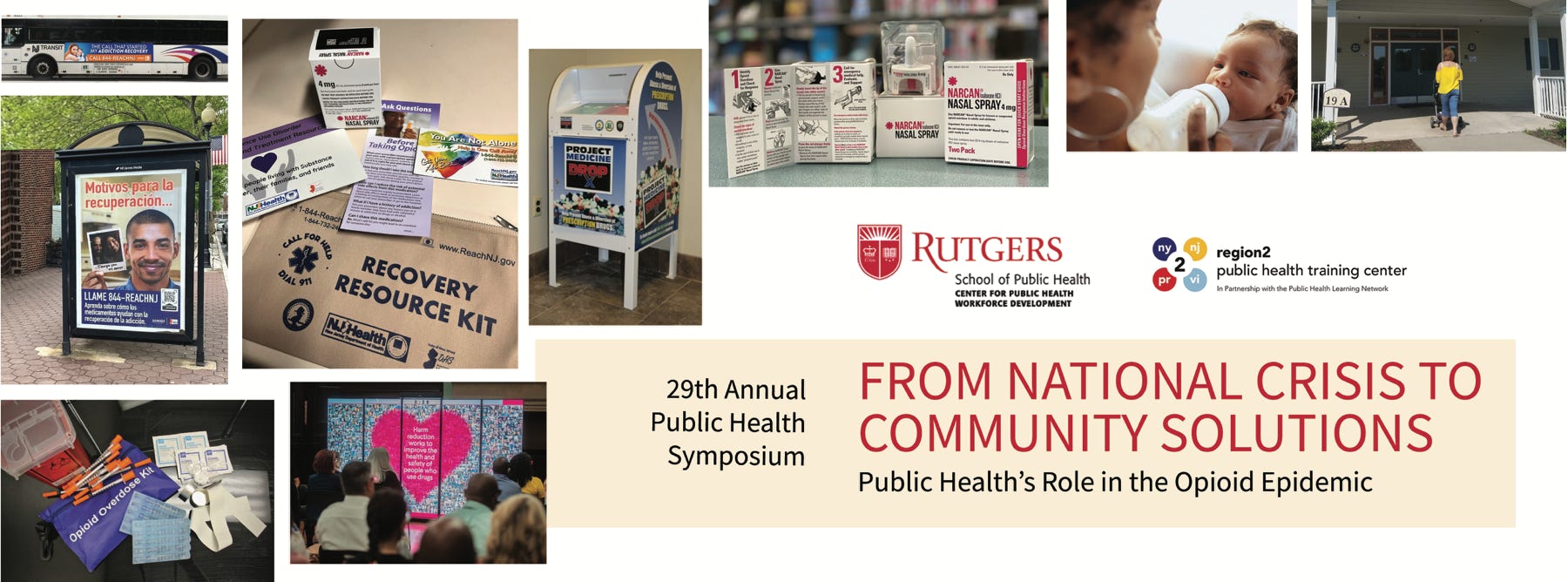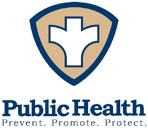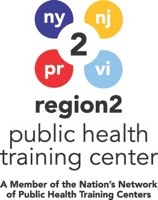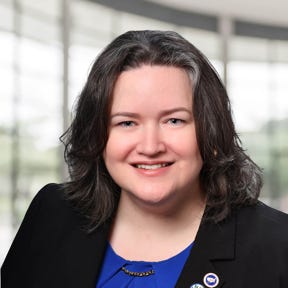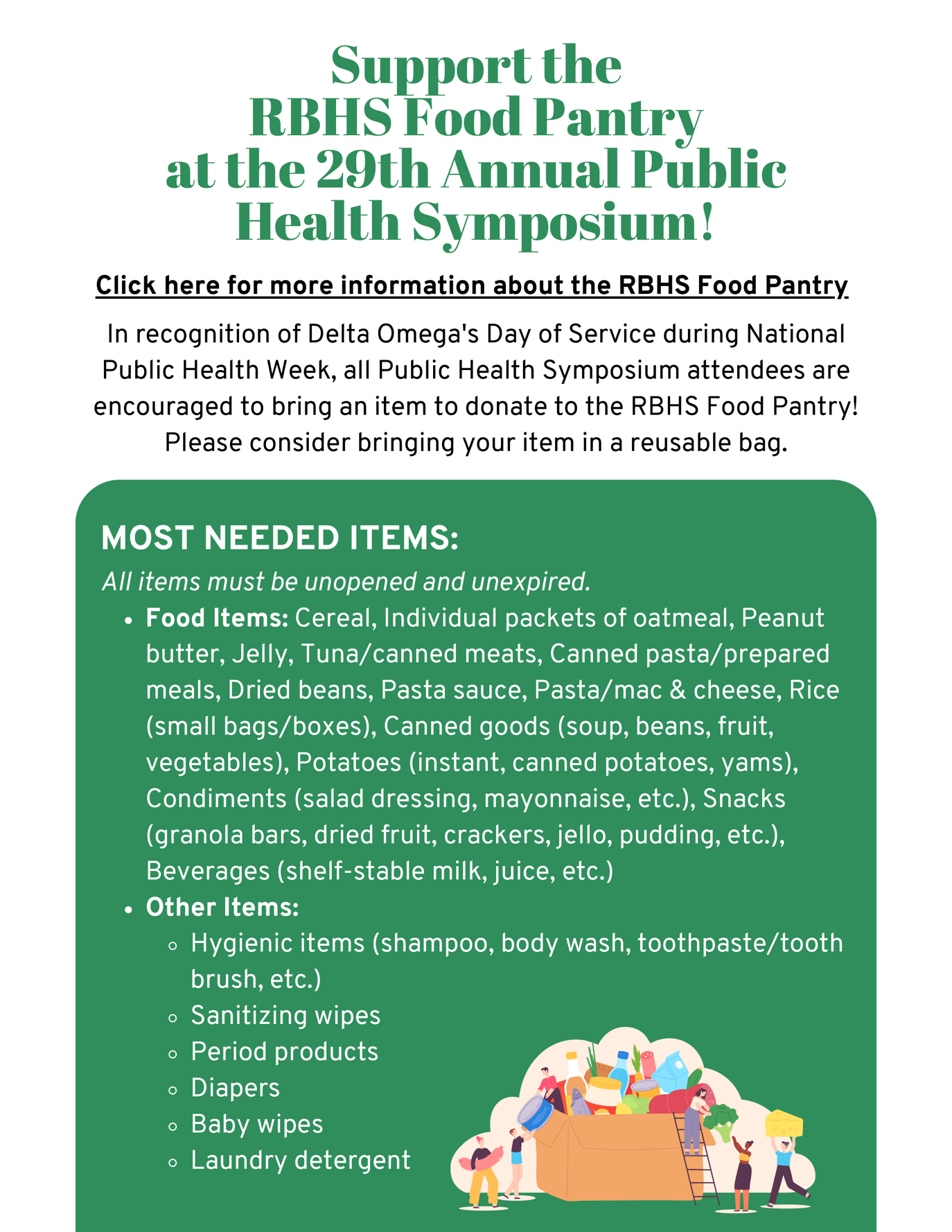Poster Presentations
Laboratory-Based Hepatitis C Care Cascade for New Jersey, 2018 – 2022
Bernice Carr, NJDOH/COMMUNICABLE DISEASE SERVICE(CDS)
The poster reflects the first Hepatitis C laboratory-based care cascade for New Jersey. As New Jersey implements a hepatitis C virus (HCV) elimination plan, a tool is needed to measure the impact of public health interventions and identify opportunities for improvements. Using longitudinal HCV surveillance laboratory data an HCV clearance cascade was developed. Further analysis of the HCV clearance cascade helps to identify disparities in progression through the cascade by population, and geography.
Preventing Marijuana Use Among High School Students
Anna Markarova, Maplewood Health Department
The legalization of recreational cannabis in the state of New Jersey has multiple implications for adolescent substance use. One potential effect is an increase in adolescent use due to increased availability and greater social acceptance. The Botvin Life skills Training course is an evidence-based substance abuse and violence prevention program designed to promote positive health and personal development by using a competence enhancement approach that addresses key risk and protective factors that can prevent daily substance use in high school students.
The Impact of a Rapid Response (RRT)to Enhance the timely support of Disease investigations in New Jersey.
Claudia Jozwiak, New Jersey Department of Health
The COVID-19 Pandemic highlighted the urgent need for enhanced capacity within the New Jersey Department of Health Communicable Disease Service (CDS) and Local Health Departments (LHD), particularly to perform public health investigations and data reconciliation. The CDS established a new versatile “Rapid Response Team” (RRT) consisting of 12 members with diverse backgrounds, including three bilingual personnel to provide rapid support to the CDS and LHDs for both SARS-CoV-2 and non-SARS-CoV-2 investigations.
Personal care product hazard ratings: associations with sociodemographic factors, perceptions, and purchasing behaviors.
Karolin Wadie, Rutgers School of Public Health
This cross-sectional U.S.-based study explores the relationship between personal care product (PCP) usage, sociodemographic factors, purchasing behaviors, and perceptions of safety. Participants reported their PCP usage, which was then linked to the Environmental Working Group’s Skin Deep® database for hazard ratings. Average hazard scores (AHS) were calculated across products per person and by PCP category (e.g., haircare, skincare). Statistical models were used to examine AHS in relation to sociodemographic factors, participant perceptions, and purchasing behaviors. The study provides evidence that the chemical hazards encountered by PCPs may vary by individuals’ sociodemographic characteristics and consumer behaviors and perceptions around PCP safety and regulation.
Community Collaboration to Address Substance Use Disorder in Burlington County, NJ
Ann Jones, Burlington County Health Department/Virtua
In 2019, a group of community partners joined together to launch the Hope One Outreach project which assists those in the community struggling with substance use disorder-using evidence-based harm reduction strategies. The Hope One team is comprised of individuals from multiple professional backgrounds. The mobile unit travels weekly to different areas of the county providing: substance use disorder treatment referrals, photo ID’s, Narcan, fentanyl test strips, mental health assistance and referrals, wound care assessment and treatment, warm kits, hygiene kits, and clothing. Hope One has become a valuable asset in the community and clients regularly seek us out for services.
Contagion in the Congregation: A Salmonellosis Outbreak Within a
Religious Institution
Jessica Alvitres, New Jersey Department of Health
Through extensive investigation from the Newark Department of Health & Community Wellness (NDHCW), a salmonella outbreak was promptly reported to the New Jersey Department of Health (NJDOH) Communicable Disease Service (CDS), where a church event resulted in three culture-confirmed cases, one PCR-detected case, an estimated 60% symptomatic attendees, and 29% hospitalizations. An outbreak-specific survey (electronic and paper-based) was launched for the 60 church attendees and found that while there is no definite food item correlation with attendee illness, the food items of concern were no longer in circulation post-event and the suspect food items were exclusive to this event.
Twin Troubles: The Impact of Flu and COVID-19 Coinfection – New Jersey, March 2020-December 2022
Justin Faybusovich, New Jersey Department of Health: Communicable Disease Service
The Communicable Disease Service at the New Jersey Department of Health implemented disease surveillance initiatives spanning from 2020 to 2022, aimed at better tracking individuals coinfected with COVID-19 and influenza. This robust surveillance effort enhanced the understanding of coinfections, including their prevalence, severity, driving factors, and demographic distribution. Additionally, these surveillance efforts incorporated the vaccination status of coinfected individuals, enabling a better understanding of the impact that vaccination has on the incidence and severity of coinfection.
The Impact of aRapid Response Team (RRT)To Enhance the TIMELY support of Disease Investigationsin New Jersey
Claudia Jozwiak, New Jersey Department of Health
The Rapid Response Team (RRT) was created to assist in disease burden from the SARS-CoV-2 pandemic and continues to be vital in assisting with other disease investigations and data collection. The team administers surveillance and epidemiological response activities for SARS-CoV-2 and other infectious diseases. RRT works collaboratively and communicates with local health departments and healthcare facility personnel, patients and others to complete disease investigations, summary reports, and other data to support vital statistics information and promote healthy communities in NJ.
Interventions for Opioid Use Disorder: A Systematic Review.
Suhaib Yehya, Rutgers School of Public Health
This systematic review addresses the critical issue of Opioid Use Disorder (OUD) among adolescents, focusing on the effectiveness of various interventions. The review included studies targeting adolescents and young adults aged 13–26, addressing opioid misuse through pharmacologic and nonpharmacologic interventions.
Supporting Bergen County: Integrating Prevention and Recovery Support Services
Cassandra Colaizzi, The Center for Alcohol and Drug Resources, a division of Children's Aid and Family Services
This poster shows the collaboration between the recovery support and prevention work being done in Bergen County. Through combined outreach efforts, harm reduction strategy, and community education practices, the team has been able to serve the largest county in New Jersey across the continuum of both prevention and addiction.
Decreased Length of Stay and Weaning Time for Infants with Neonatal Opioid Withdrawal Syndrome (NOWS): Modified Eat Sleep Console© as a Pilot Program
Melissa G. Smith, Children's Specialized Hospital
The opioid and prescription drug crisis in the United States has reached epidemic proportions, resulting in an increased number of infants with Neonatal Opioid Withdrawal Syndrome (NOWS). These infants may experience acute withdrawal symptoms within the first weeks of life. Current evidence notes long term effects in their development. Children’s Specialized Hospital (CSH) has a unique rehabilitation program that supports medical weaning, as well as non-pharmacologic interventions. CSH reviewed the Eat Sleep Console model (ESC©) and developed a pilot program “Modified Eat Sleep Console©” (MESC©), as infants admitted are actively weaning and are now in a rehabilitation environment vs. the NICU. MESC© was implemented to explore if LOS and weaning time could be reduced. Infants participating in a MESC© pilot were able to wean in significantly less time and discharged sooner than infants treated using a traditional model.
Decreased Duration of Opioid Weaning for Infants with Neonatal Opioid Withdrawal Syndrome Following Early Admission to Children's Specialized Hospital
Melissa G. Smith, Children's Specialized Hospital
As a result of the opioid and prescription drug crisis in the United States, the number of infants with Neonatal Opioid Withdrawal Syndrome (NOWS) has increased. Children’s Specialized Hospital (CSH) has a unique NOWS program dedicated to medical weaning from opioids, while providing therapeutic intervention. Best practice suggests beginning medical weaning for an infant with NOWS between day 7-14 of life is optimal to support growth and neural maturation. The team explored the relationship between weaning duration and length of stay (LOS) for infants with NOWS by reviewing data points of age at admission and medications used. Infants admitted to CSH within two weeks of birth spent significantly less time in acute rehabilitation compared to infants admitted after day 14 of life. Early admission reduces length of time required to wean infants from opiates, may shorten LOS, decrease healthcare costs and promote infant/caregiver bonding.
Sociodemographic disparities/predictors of Opioid use among young individuals: Secondary Analysis of BRFFS survey
Rutvi J Upadhyay, Rutgers New Jersey Medical School
Understanding the influence of sociodemographic factors on increased opioid utilization among youth is crucial amid the opioid epidemic. This observational study aims to explore this relationship using data from the 2021 Youth Risk Behavior Survey, which sampled high school students. Variables such as sex, race, ethnicity, age and class grade were measured, with opioid use as the primary outcome. Descriptive and inferential statistics, including logistic regression, were employed. Adjustments were made for oversampling and nonresponse. Results show 18.47% reported opioid use, with a median age of onset at 16 years. Females exhibited 1.5 times higher odds of use than males, while Black individuals had significantly higher odds compared to whites (OR =1.2, 95% CI =1.0, 1.4 ). Asian and non-Hispanic populations demonstrated lower usage rates. These findings underscore the significant association between sociodemographic factors and opioid use among youth.
Championing Change: Saint Peter's University Hospital's Role in Battling the Opioid Epidemic
Marissa Kass, Saint Peter's University Hospital
Saint Peter's University Hospital is at the forefront of addressing the opioid crisis in Middlesex County, NY. Through our involvement in the Opioid Task Force, we focus on understanding and mitigating the impact on the local population. This poster highlights the distribution of Naloxone (Narcan) at our hospital over the past 3 years (2020-2023), showcasing its utilization. Additionally, it underscores our collaborative partnerships with organizations sharing our mission to combat the opioid epidemic. Our educational initiatives for high school students are also featured, demonstrating our commitment to reducing negative outcomes associated with opioid addiction.
Reducing the Impacts of the Opioid Crisis on the Behavioral Health Underserved Population
Jenny Bernard, Hackensack Meridian, and Health
The severe opioid/substance use disorders epidemic has become a pressing public health concern, devastating individuals and communities. To address this concern, a bundle of five key interventions was created to mitigate risk factors contributing to hospital readmissions. This bundle addressed social determinants of health among the underserved behavioral health population. The interventions used included care coordination, transportation, risk-stratified phone calls, medication reconciliation, and a wellness package, which were implemented to facilitate the continuity of care post-discharge. This project decreased hospital readmissions across 9 acute care facilities from 7.1% (post QIP-enrollment 2022) to 3.3% (post QIP-enrollment 2023).
Recovery Friendly Workplace: a strategy to support employees impacted by the opioid crisis, substance use and behavioral health concerns.
David Martinak, Recovery Friendly New Jersey
This poster paper discusses the importance of establishing a recovery-friendly workplace and outlines practical strategies for employers to support employees in their journey towards recovery from substance use disorders or mental health challenges. By fostering a culture of understanding, empathy, and support, organizations can enhance employee well-being, productivity, and retention.
Detecting Fraudulent Participants through Multi-phase Screening Process in an Online Study of Youth and Young Adults
Caitlin B. Uriarte, Rutgers Institute for Nicotine & Tobacco Studies
A multi-phase screening process was implemented in recruiting for an online cohort study of NJ and VT youth and young adults aged 12-25 from December 2023-January 2024. The study consisted of a four-phase screening process including a pre-screener survey (Phase 1), a screener survey (Phase 2), and manual screening of the survey data for critical flags (Phase 3) and non-critical flags (Phase 4). The final sample of youth and young adults were 20% of the original sample. Phase 1 detected 49% fraudulent participants, phase 2 detected 24% fraudulent participants, and Phases 3 and 4 identified 5% of fraudulent participants. Our findings suggest that a multi-phase screening process with automated and manual features is needed to improve valid responses to online studies.
Smoking in youth and Dental health awareness: Secondary analysis by Dental visits and Demographics
Hyndavi Krishna Javvaji, Rutgers New Jersey Medical School
Regular 6 months Dental checkup is very important to maintain oral health and prevent gum diseases and cavities, especially critical for smokers. This observational study aims to see the patterns of last dental visits among smokers and tobacco chewers. 3% of the study's participants are smokers (Median ,17 years) and the population surveyed consists of high school students. Analysis using multiple logistic regression by dental visits, Sex and Race ethnicity indicates to have significant lower odds (0.32, 95% CI =0.24, 0.43). of having dental visit during past 24 months than those who Never had visit and significantly higher odds (1.19,95% CI =0.87, 1.63) of smoking in African American race. AUC for dental visits in smokers was 0.58. Frequency of dental visit during past 24 months among smokers was only 67%. These findings underscore the urgent need for dental health education among young smokers to preserve oral health and need for further research and equity measures for underserved population.
